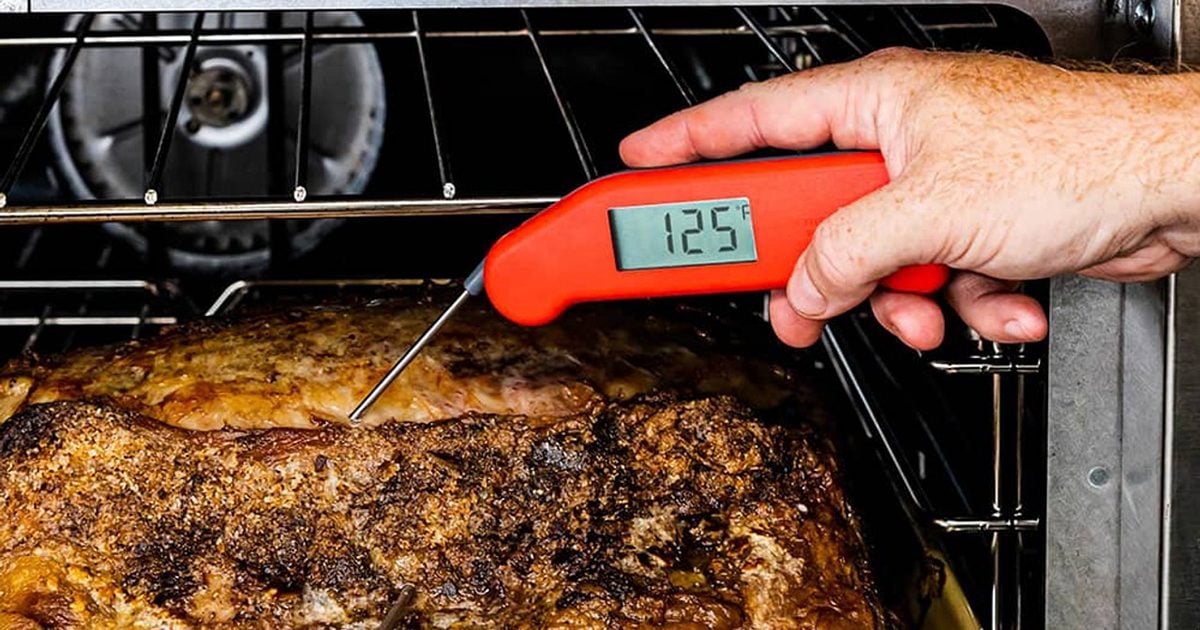What to Look for in a Meat Thermometer: A BBQ Enthusiast's Guide
Written By James Morgan
Whether you're a seasoned pitmaster or a backyard barbecue fan, knowing what to look for in a meat thermometer can make all the difference in achieving perfectly cooked meats. With so many options on the market, it can be overwhelming to choose the best one for your grilling needs. In this guide, we'll cover all the key factors to consider, ensuring your meat turns out juicy and safe every time.

Why a Quality Meat Thermometer is Essential
Barbecuing is an art and science. You invest time in seasoning, marinating, and mentally preparing for the grilling experience. However, without a reliable meat thermometer, you're left guessing whether your meat is cooked to the perfect temperature.
Accuracy Matters
One of the most important features of a meat thermometer is accuracy. Look for models that provide a digital readout and have been tested for precision. Inaccurate thermometers can result in undercooked or overcooked meat, which can ruin a good barbecue.
Response Time is Critical
Additionally, consider the response time of the thermometer. Fast-reading thermometers, typically giving results in 2-3 seconds, are ideal for quick readings and allow you to get a more accurate measurement promptly.

Choosing Between Analog and Digital Thermometers
When we talk about meat thermometers, the first choice to make is between analog and digital models. Here's a breakdown of each type to help you decide which best fits your needs.
Analog Thermometers
Analog thermometers are traditional and don't require batteries, making them incredibly reliable. However, they can be harder to read and not as quick to provide a temperature reading. They are generally more affordable and durable.
Digital Thermometers
Digital thermometers offer quick, precise readings and often come with additional features like preset temperature settings, alarms, and even app connectivity. They're perfect for those who want technology to assist in their grilling.

Additional Features to Consider
Beyond the basics, there are several advanced features that can make barbecuing easier and more enjoyable.
Probe Length and Durability
The length and durability of the probe are essential considerations. A longer probe allows you to check the temperature in larger cuts of meat without getting too close to the heat, while a durable, high-quality probe is less likely to break or deteriorate over time.
Wireless Capabilities
Wireless meat thermometers, such as Bluetooth or Wi-Fi models, can provide real-time readings on your phone, freeing you from constantly checking the grill. This feature is particularly useful for long, slow-cooking sessions.
Temperature Range
Ensure the thermometer you choose has a broad temperature range. Some thermometers are designed specifically for grilling, while others are more versatile and can be used for candy-making or deep-frying as well.

Maintenance and Calibration
Keeping your meat thermometer clean and well-calibrated ensures its accuracy and longevity. Follow the manufacturer's instructions for cleaning and recalibrate it regularly, especially if you notice any inaccuracies.
Meat Thermometer on RotisserieMeat Thermometer SensorWithout Meat ThermometerHow to Use Meat ThermometerProper Cleaning
After each use, clean the probe thoroughly to avoid cross-contamination. Most digital probes are waterproof and can be rinsed off, but always check the instructions first. Analog thermometers might require a more gentle cleaning approach.
Calibration
Periodically, you should calibrate your meat thermometer to ensure it's accurate. Many digital thermometers come with a calibration feature, and for analog models, calibration might involve using ice water or boiling water.
FAQs
What is the ideal temperature for grilling steak?
The ideal temperature for grilling steak varies based on preference, but generally, rare steak is around 120-130F, medium-rare is 130-140F, and medium is 140-150F.
How do I know if my meat thermometer is accurate?
To check the accuracy, you can test your thermometer in ice water (32F) and boiling water (212F) and see if the readings match.
Can I leave my thermometer in the meat while it's cooking?
Some meat thermometers are designed to be left in the meat throughout the cooking process, while others are meant only for quick readings. Check your thermometer's specifications before use.
As an Amazon Associate, I earn from qualifying purchases.



